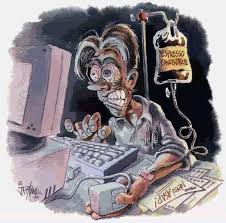The recent jubilation over the highest in a decade pass percentage in PU exams set me thinking. I shot of my opinion, and an excerpt from it was published in the letters section in Deccan Herald. Here's the complete, unedited version.


The
recent report on the pass percentage in the PU exams of 57.9% made headlines
for being the highest in the decade. Is this a matter of pride or worry? This raises an uncomfortable question of the
relevance of the current system. SSLC and PU exams are meant to set a benchmark
for the minimum knowledge a candidate must possess after schooling. In other
words they test whether the educational system has achieved its objective of
educating a child. It is not just a test of the child but of the system as
well. A student who scores 57.9 % in her exam is termed mediocre. Then what
does one say of a system of education that is proud to deliver 57.9% results?
A
thorough relook at the curriculum is necessary. Is it teaching what we want
children to learn? Emphasis on abstract theory with little mention of practical
application makes a curriculum difficult to grasp. Unless a curriculum aims to
promote better understanding of the subject, rote learning soon renders it
meaningless. A student who gets the impression of studies being devoid of
meaning and application looses interest in such an education. The numbers game where
marks are all that count, is an incentive for shortcuts. Interestingly Andhra
Pradesh Board has replaced marks with grades in this year’s Class X results.
It
is easy to blame government colleges with their well known deficiencies in
infrastructure and manpower. Karnataka
has numerous private colleges too. Undoubtedly they too contribute to some of
these failures despite having better resources. Coaching institutes have
proliferated in towns and cities offering to remedy the deficiencies of the
formal education system. Students still fail.
Exams
test a student’s performance of that hour. A system that includes evaluation of
student performance throughout the year will do much to reduce the “luck”
factor in exams. This would recognise consistency and provide feedback to both
teacher and student about those falling behind. Timely intervention could then
help them improve.
Exam
evaluators are an overburdened lot. With too many papers to evaluate and too
little time to do it, leaves the best person error prone. Great is their
responsibility in deciding the merit of a student. Their remuneration must
match their responsibility. A student who deserves to be failed also deserves to
know the reason why. This would help her identify her shortcomings and improve
next time, besides bringing transparency to the system.
Congratulations
are due to all those successful. Spare a thought for those who failed. In a
system unlikely to change in any hurry, family and friends are the last hope. A
family that understands that marks are not everything, will help the child who
failed to emotionally cope with a poor performance. A family that is supportive
and not judgemental is the best healer for all the agonies of these children.
It is to be remembered that no student intends to fail. Post results suicides
ritually follow declaration of results. We can but try our best and hope for a
better system. A system where no child should feel that life is not worth
living.
